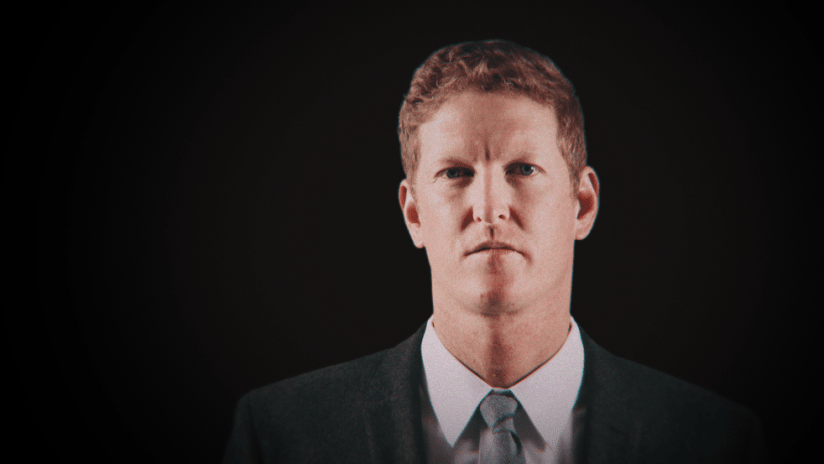Wednesday’s news cycle brought some surprising developments in the sporting world, highlighted by NASCAR’s decision to ban the Confederate flag from its events and the Boston Red Sox acknowledging the prevalence of racial slurs at Fenway Park last season. Both seemingly the latest in the cascading series of repercussions from the murder of George Floyd in Minnesota last month.
From some angles, soccer, particularly in North America, can appear progressive by comparison to its counterparts. But Jim Curtin has some hard facts for anyone lured into that sort of thinking.
“We live in a country in the United States that is racist. We live in a world that is racist. And if you zoom out and you look at the game of soccer that we play, we play a game where racism is as prevalent as in any other sport,” the Philadelphia Union’s head coach told reporters in his opening statements in a conference call Wednesday.
“You still have issues in 2020 of horrible racist chants in stadiums, bananas thrown on the field at players and minimal, to almost no punishment or change,” he said. "I look at this problem in our country as not a southern problem or a middle-of-the-country problem or a West Coast problem or an East Coast problem, or a liberal, conservative, Republican, Democrat problem. It's one that affects everybody and it's present each and every day of our lives.”
Curtin had plenty to talk about, given the league had officially announced its return to action with the revealing of the MLS Is Back Tournament in Orlando few hours prior. So the fact he began his media availability with a substantial statement about the suddenly urgent national conversation on race, policing and institutional discrimination was striking.
“You have a build-up of 400 years of oppression for black people,” he said. “Systemic racism in our country has led to the culmination with the brutal murder of George Floyd.
“We've reached a point now where there's been the start of a lot of action – and I feel almost not worthy to speak on action, but I do feel I have a platform and I do think that I can at least speak to some simple things that we can all look to,” Curtin added.
He suggested soccer fans and people of all backgrounds educate themselves by listening to Black voices like CJ Sapong and Kei Kamara, two of the many MLS players to speak out about their own experiences with racism, and Black Lives Matter activist DeRay Mckesson. That they consider donating to police reform efforts like Campaign Zero and 8 Can't Wait. And that he himself, along with clubs across the league, must take responsibility for the paucity of Black coaches and executives in MLS – and then make moves to fix it.
“In a league where you look on the field and somewhere in the ballpark of 50 percent of our players are Black,” said Curtin, “I turn to my own staff and I have to question and judge: Am I doing enough to bring more diversity to our group? It's also a league-wide problem, it's not a Philadelphia Union thing. Front offices, general managers, these things all have to be looked at now and action needs to be taken to make things better in our country.”
Curtin also hailed the current and former Union players who have spoken out on the wider issue, shared their own experiences or even hitting the streets themselves to take part in marches and protests, including Sapong, now with Chicago Fire FC, and former Union winger Fafa Picault, now at FC Dallas.
“Guys that are now out on the front lines, being active, protesting, engaging in conversation, speaking their mind, it makes me proud as a coach,” he said. “I learned a ton from those guys as players on and off the field. They're winners. They're great people. They're open to new ideas and again, sharing their experiences, which is how we all grow and get better.”
Curtin also issued a challenge of sorts, citing the words of Mckesson.
“The question is, what are you willing to risk to change history?” he said. “I believe that black people over their entire lives in the last 400 years have been willing to risk everything … And they'll continue to risk everything. And I think it's time now that leadership in our country and government, white people in general, have to be willing to risk more. And look, every person’s level of risk is going to be different to their situation. But it is a time for all of us to come together, to help out, to speak up, to listen, to get to know each other on a closer level and work to improve things.”













